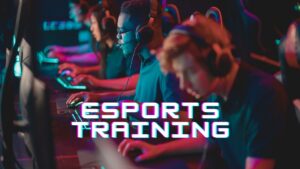Insights based on data and performance analysis have become essential tools for players, teams, and coaches in the fast-paced world of esports, where split-second choices may make or break a game. Esports analytics makes use of the power of data to enhance performance in the virtual arena and obtain a competitive edge.
Esports data collection involves gathering an enormous amount of data during competitions, including player movements, actions, and interactions. Then, this huge amount of data is analyzed to uncover insightful information that can guide decision-making. Analytics offers an in-depth understanding of the game, covering everything from individual player performance to team relationships and overall game plans.
Also Read: Esports Journalism: The Emergence of Esports News and Reporting
Player performance analysis is one application of esports analytics that is essential. Analysts are able to identify a player’s strengths and weaknesses by monitoring several indicators, including kill and death rates, accuracy, and resource management. With the help of this data, coaches may offer precise criticism and training plans to help players develop particular talents, ultimately improving the team’s performance as a whole.
Esports analytics also heavily highlight collaboration and strategy optimization. Analysts can spot patterns and trends that might have an impact on a team’s performance by examining team movement patterns, communication frequency, and objective control. This knowledge enables teams to make well-informed choices regarding playstyle, composition, and strategic modifications, resulting in improved teamwork and coordination.
Esports analytics are essential for recruiting and identification. Teams can spot rising stars and potential recruits by looking at a player’s historical data and performance indicators. A player’s abilities and potential fit within a team’s playstyle can be fully assessed using statistical analysis when combined with individual evaluations.
Esports analytics go beyond the actual game as well. Insights derived from data are also applied to audience engagement and marketing. Organizations may better target certain demographics with their marketing efforts and interact with their fan base by analyzing viewership data, social media activity, and fan sentiment. This strategy enables organizations like teams and sponsors to choose branding, content production, and fan engagement tactics based on data.
Analytics will play a bigger part in esports as it becomes more well-known and more professional. Teams, coaches, and players have access to a powerful tool that allows them to optimize their tactics, develop their abilities, and connect with their audience via a combination of data-driven insights and performance analysis. Organizations can keep one step ahead of the competition, adjust to changing trends, and achieve new heights of success in the world of technology by implementing esports analytics.





